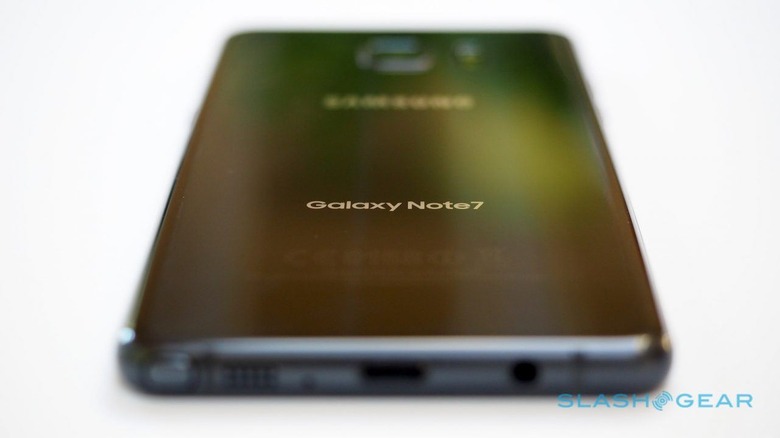Samsung's Note 7 Recall Prompts Tough New Battery Regulations
Eagle-eyed inspectors will be watching over Samsung's Galaxy Note 8 and other upcoming smartphones to ensure there's no battery explosion repeat, South Korean regulators confirmed today. In the aftermath of the Galaxy Note 7 recall – which saw Samsung forced to refund every buyer of the phablet worldwide, as well as hear its flawed flagship declared unsafe at the start of every flight – battery pack safety testing has suddenly become a high-profile commitment. Now, the Ministry of Trade, Industry and Energy in Samsung's home country is weighing in too.
The Ministry – which is known as MOTIE – has just completed its own investigation into the Note 7 battery fiasco. Carried out by its affiliate, the Korean Agency for Technology and Standards (KATS), the deep-dive concluded that it was indeed the battery that was at fault. "In the testing of damaged batteries distributed after Samsung Electronics' second recall of Galaxy Note 7 smartphones, for instance," MOTIE writes, "KATS found damages by fire in the negative electrode close to the positive tab in a considerable number of batteries."
However, further digging into the rest of the smartphone – including the power circuit and battery protection circuit module, along with any examples of external pressure and space left for the battery within the device – concluded there were no further "abnormalities" KATS said. Small satisfaction for those whose Note 7 actually exploded, of course, but a validation of sorts for Samsung. Still, MOTIE points out that "those accidents could have been prevented if battery manufacturers and smartphone makers had strengthened the product production process control and product quality management."

That, of course, is just what Samsung has promised to do moving forward. The company has committed to an eight-step validation process for battery safety, having undertaken its own investigation into the problem. Now, though, it'll be under greater scrutiny by government regulators.
For instance, MOTIE says, new lithium-ion battery designs will now have to be certified in the process of production, rather than just checked. The government plans to request more samples from manufactures moving forward, in addition to introducing extra tests that it will carry out. The Electrical Appliances and Consumer Products Safety Control Act will be updated by October 2017, the Ministry says, in order to bolster its enforcement powers.
Still, there's some concern that more in-depth testing could end up hamstringing development. The new battery safety certification requirements, for instance, will only be enacted for the next five years. That, MOTIE argues, should ensure that it doesn't "delay the swift introduction of innovative (battery) technology in the market."
At the same time, MOTIE is aiming to "minimize the influence of increased regulatory rules on market competition." Samsung's scale and its contribution to South Korea's financial stability are seldom far from the considerations of its government; the company is responsible for a fifth of all of South Korea's exports. That market heft has previously led to concerns that investigators could turn a blind eye to corruption and other issues, in the interest of not rocking the boat.
For consumers, meanwhile, it looks likely that the next batch of Samsung flagship phones and phablets will be even safer than what's typical in the industry. After all, the Samsung Galaxy S8 and the Note 8 will need to be squeaky-clean when it comes to battery stability as Samsung demonstrates it can, indeed, make phones that don't explode. We're expecting to see the Galaxy S8 hit stores in April 2017.
SOURCE MOTIE
